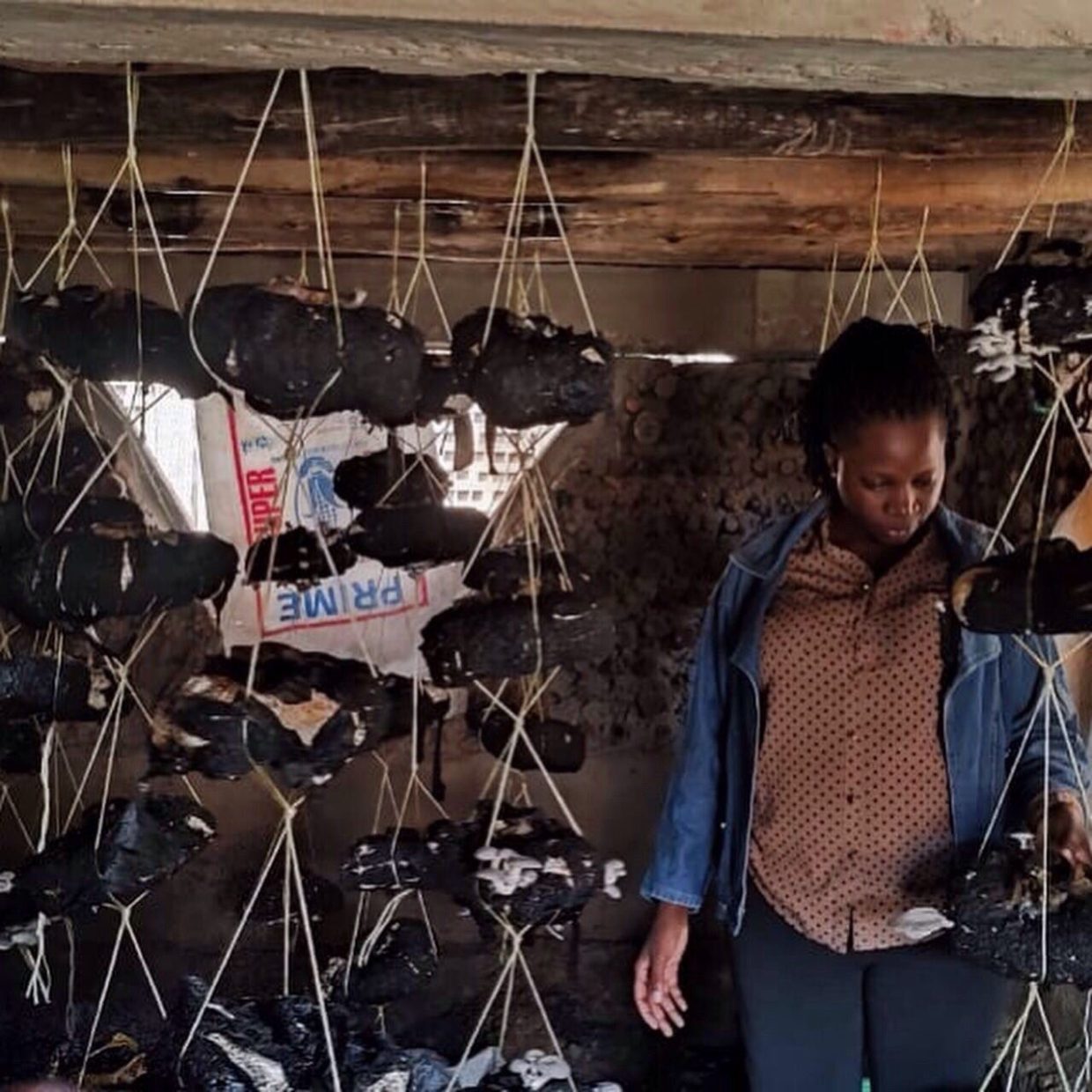“When I saw women growing oyster mushrooms at Kalangala island in Lake Victoria, I decided to bring this idea back to my community,” Majorine Nansubuga from Mityana district in Uganda states firmly but gently. “With ‘Maanyi Women Development Trust’, we empower women into being entrepreneurs,” she carries on about the organization she got officially registered in 2019. Her mother who is the head of the ‘Village Health Team’ in Maanyi, is her great example: “Growing up I accompanied her to small communities, learning women about family planning and immunization. This prompted me to really want to stand up for women.”
Being born and raised in Maanyi village in Central Uganda as the only child of her mother, Majorine moved to capital Kampala to do her studies in finance and accounting in 2016. While studying she contested for the position of general secretary on the ‘Village National Women Council Committee’ in her home district Mityana. She was elected for the village of Maanyi: “I was still at university, but I needed to be with the women.” Majorine met her soon-to-be husband and travelled with him to remote areas: “He builds solar mini grid power systems for rural communities without light and electricity.” On one of those trips Majorine discovered the growing of oyster mushrooms.
The epiphany of stay-at-home mums growing oyster mushrooms
“In our community we have a lot of women who dropped out of school, trapped in early marriages. Many young mothers stay at home, husbands not allowing them to work. There is this traditional idea that only men should bring all the things home.” Seeing how women can grow oyster mushrooms in their own houses meant a real epiphany for Majorine: “The mushrooms don’t need a lot of work, the whole process is not very expensive, and it is sustainable.” She describes the process from cotton waste – leftovers out of textile production – combined with mushroom spawn, fermenting the spawn by steaming it in old oil drums, than putting the sprouts and cotton waste into black bags and hang them in a dark room. “We deliver these readymade ‘gardens’ to the houses of women and put them up. All they need to do is water the oyster mushrooms twice a day and pick them when they are ready.” In the course of 30 days women can pick two to five kilograms from one bag, for family consumption and to sell back to Majorine and her team, who then sell it to markets in Kampala.
Woman entrepreneurs not accepted in traditional society
Majorine and her team of two other women started with training ten women on the watering, picking and best conditions for the oyster mushrooms. According to the train-the-trainer principle 150 women are trained into home growers on a monthly basis. “Some women are really developing their business by scaling up the production, working together with neighbours,” Majorine emphasises the fuelling of the entrepreneurial spirit within the women. She and her team are focussing on monitoring the growth, handling the suppliers and buyers. The Maanyi Women Development Trust is a non-profit organization, handing out the readymade oyster mushroom gardens for free to women in vulnerable positions. “I feel the urge to help fellow women,” Majorine describes what drives her, “but the community looks at you as bossy when you are an entrepreneur as a woman. Most of the time I encounter men who try to say to their wives that they shouldn’t talk to us. Widows and single mothers are eager to join us because they are now family heads. Those who are married, find difficulties joining us.”
Springboard into a more independent future
Luckily Majorine is being supported by her family, her fiancé and baby boy. She is leading by example in her rural community, where the major role of women is to take care of house chores and children. “After the menstruation cycle starts, girls are set up to marry, so families can receive a dowry for them. Girls are not been given time to look into what it is they want to do and they often don’t have the ability to stand up for themselves.” Majorine sees positive developments when it comes to women being more and more educated. For women staying at home, the oyster mushroom training and growing – as part of the Maanyi Women Development Trust economic empowerment program – provides a springboard into a more independent future. “It’s through this project that we could afford to buy a sewing machine this month to help adolescent girls make their own reusable sanitary pads.” Since pads on the market are often too expensive for them, women and girls stay at home when menstruating. The reusable sanitary pads are yet another way to help them to be more independent and less house bound. “I want women to express themselves,” Majorine concludes in her own firm but gentle way.
https://www.maanyiwomendevelopmenttrust.org/
Interviewer and author Lisa Koolhoven
